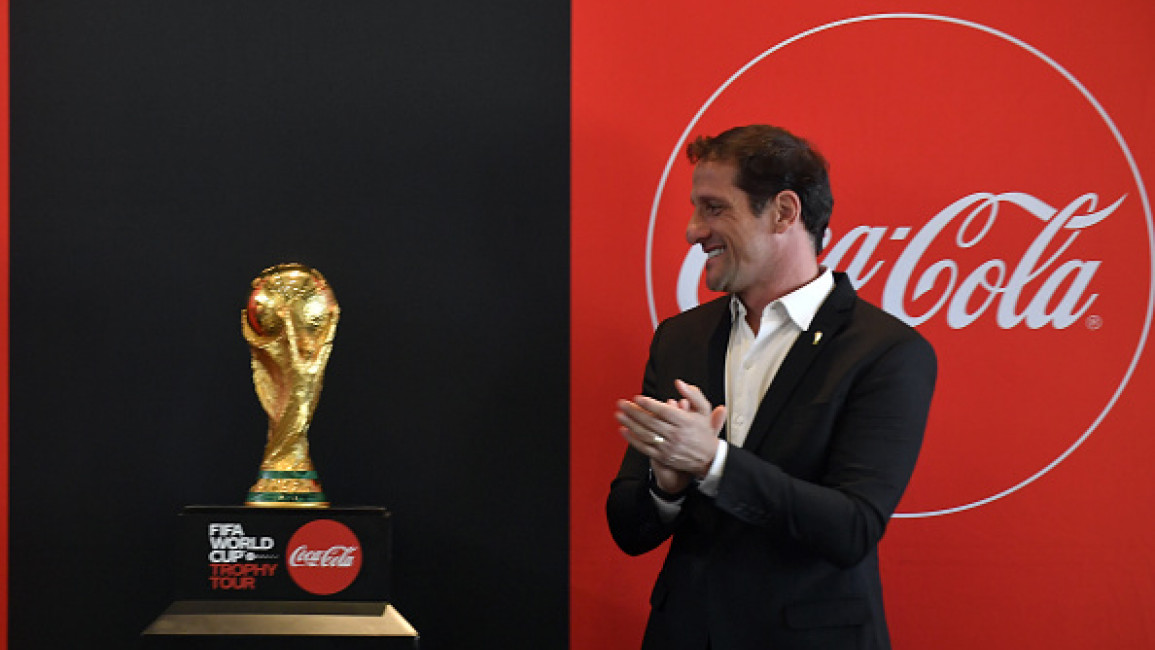Lebanon PM asks Qatar to help his bankrupt nation watch 2022 World Cup
Lebanon’s Prime Minister Najib Mikati on Monday asked Qatar to help its citizens watch this year's World Cup, as spiraling inflation and a weak Lebanese lira puts TV coverage out of reach for most Lebanese.
Miktati also requested that Doha help Lebanese wishing to travel to the Gulf emirate to watch the World Cup in November this year.
After meeting with Qatari local and regional media expert Mohammed Rashid al-Khanji and Doha’s Ambassador to Beirut Ibrahim bin Abdul Aziz Al-Sahlawi, Mikati called for coordination between Beirut and Doha to assist those seeking to attend football's biggest tournament.
He also asked Qatar to assist those staying in Lebanon to access matches on television, but the details of this request were not clear.
The World Cup will run from 21 November to 18 December in Qatar.
Mikati’s request came a day after the World Cup trophy was put on display in Beirut for just a few hours as part of an international tour and opening for the football tournament.
The trophy was accompanied by Brazilian footballer Juliano Belletti.
#كأس_العالم تصل إلى #بيروت#الميادين_لبنان pic.twitter.com/WDR3yaI4He
— الميادين لبنان (@mayadeenlebanon) June 5, 2022
في استضافة كأس العالم - بيروت ٥ حزيران ٢٠٢٢ @thelfadotcom @FIFAWorldCup @fifacom_ar @fatma_samoura @CocaCola pic.twitter.com/tcu4YKK1AR
— Mahmoud Abou Al Naja (@mahmoudabounaja) June 5, 2022
Al-Khanji said choosing Lebanon as a destination for the World Cup promotion tour "didn't come from nowhere".
"We were really impressed by the love that we saw during our visits to schools and academies, many Lebanese even have tickets to attend the World Cup," he said.
Ticket prices on average go above $1000, which has become out of reach for a large portion of Lebanese as the county reels under the worst ever financial crisis.
The Lebanese currency has lost more than 90 percent of its value in less than three years, while many people have slipped into unemployment and poverty during the economic meltdown.
Under the current exchange rate which stood at roughly 28,000 Lebanese Pounds (LL) on Tuesday, $1000 would equal around 28 million Lebanese liras.
If no deal is reached, many people in Lebanon who cannot afford a license will have to rely on illegal cable networks or cafes and bars to watch the games.
In 2014, Qatar-based beIN Sports filed a lawsuit against state-run television channel Tele Liban (TL) for broadcasting the games - hosted by Brazil at the time - without legal permission.
However in 2018, TL broadcast the games free of charge after the Lebanese government acquired broadcasting rights.



